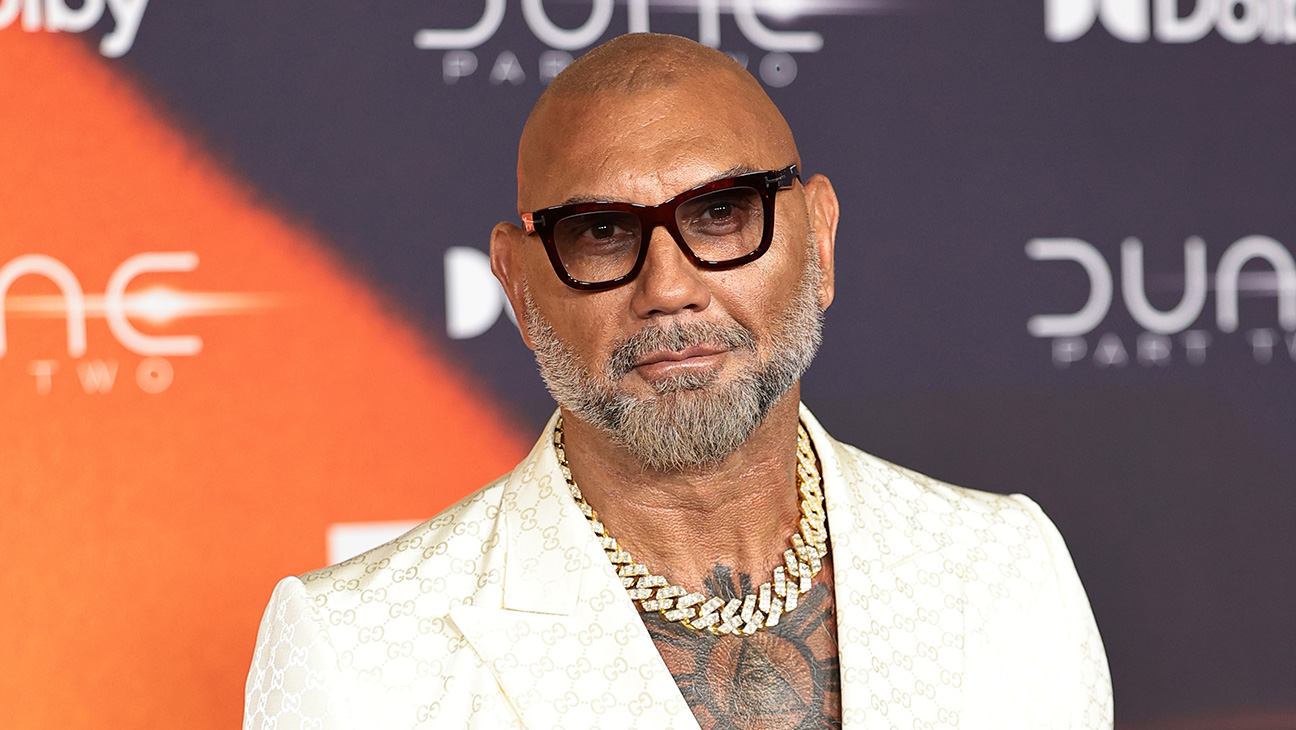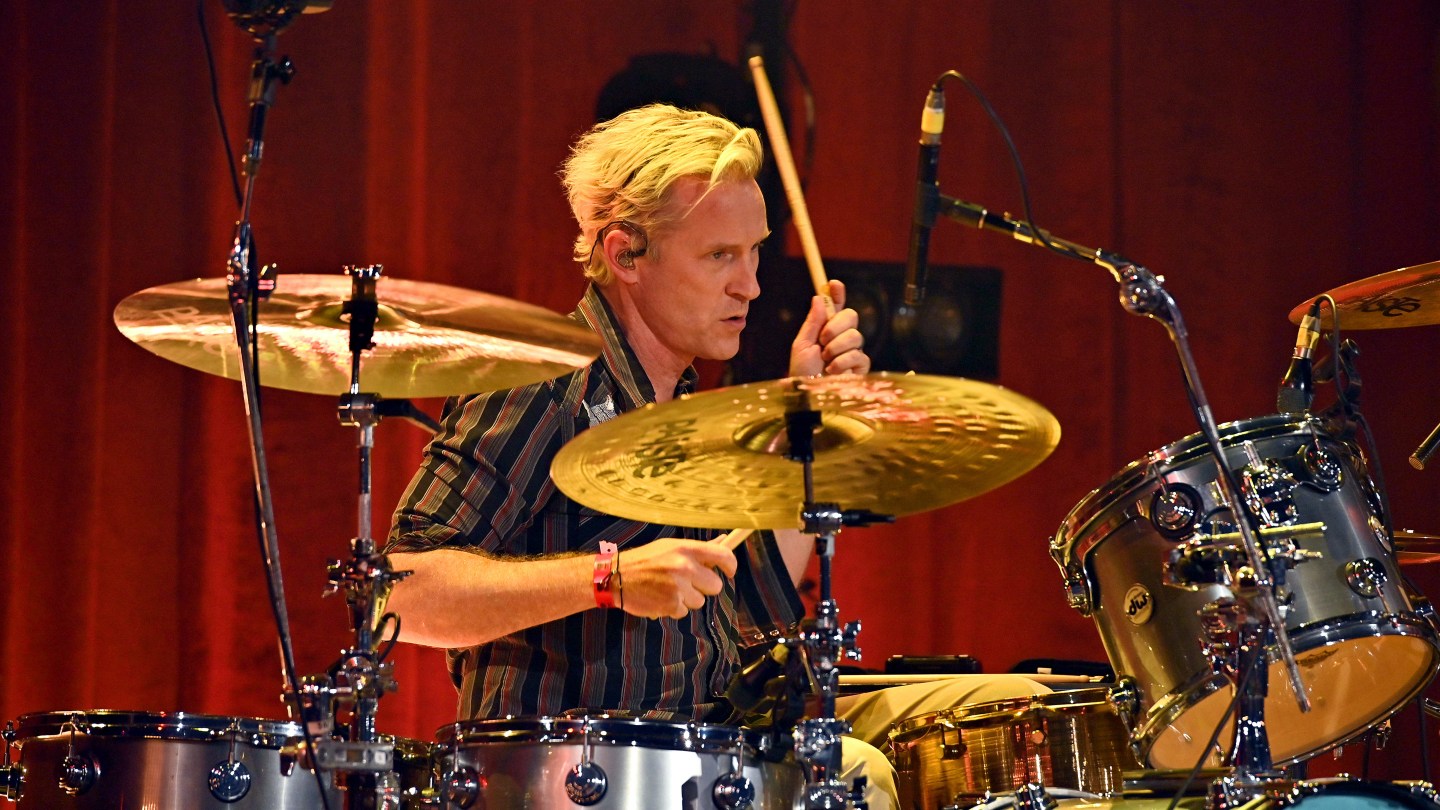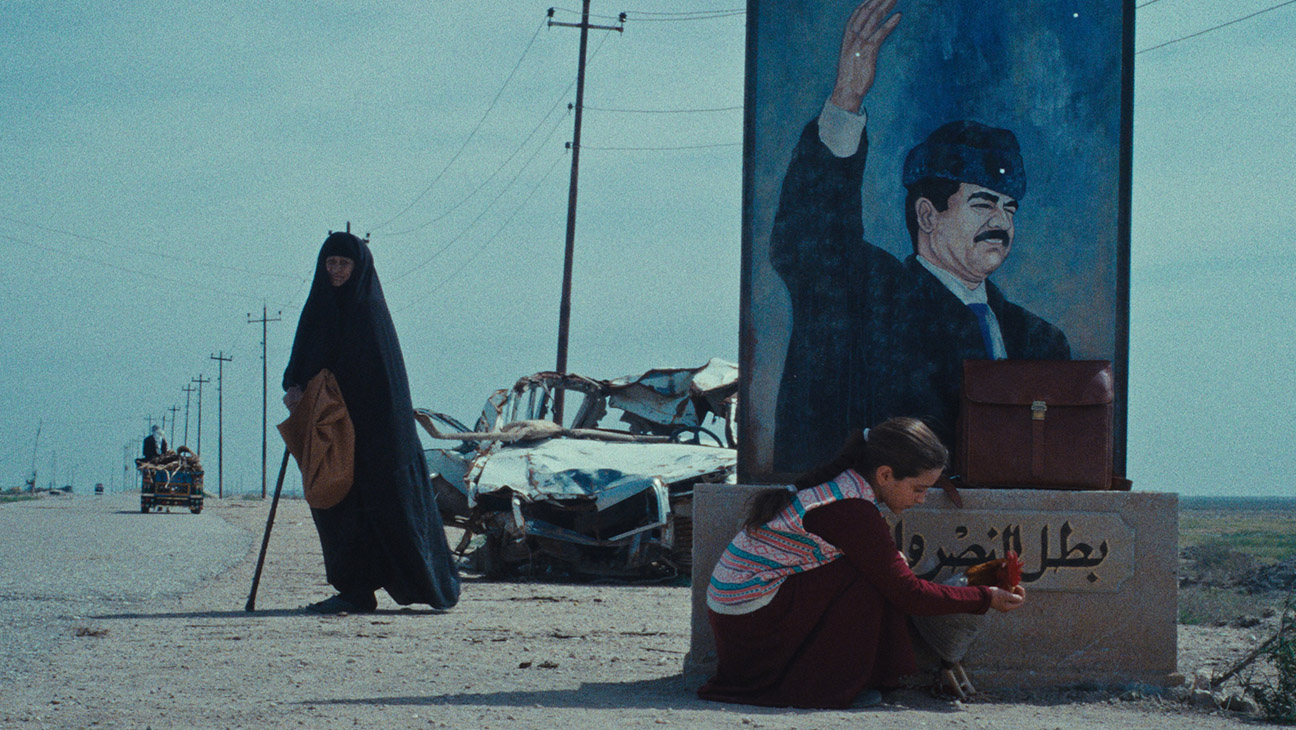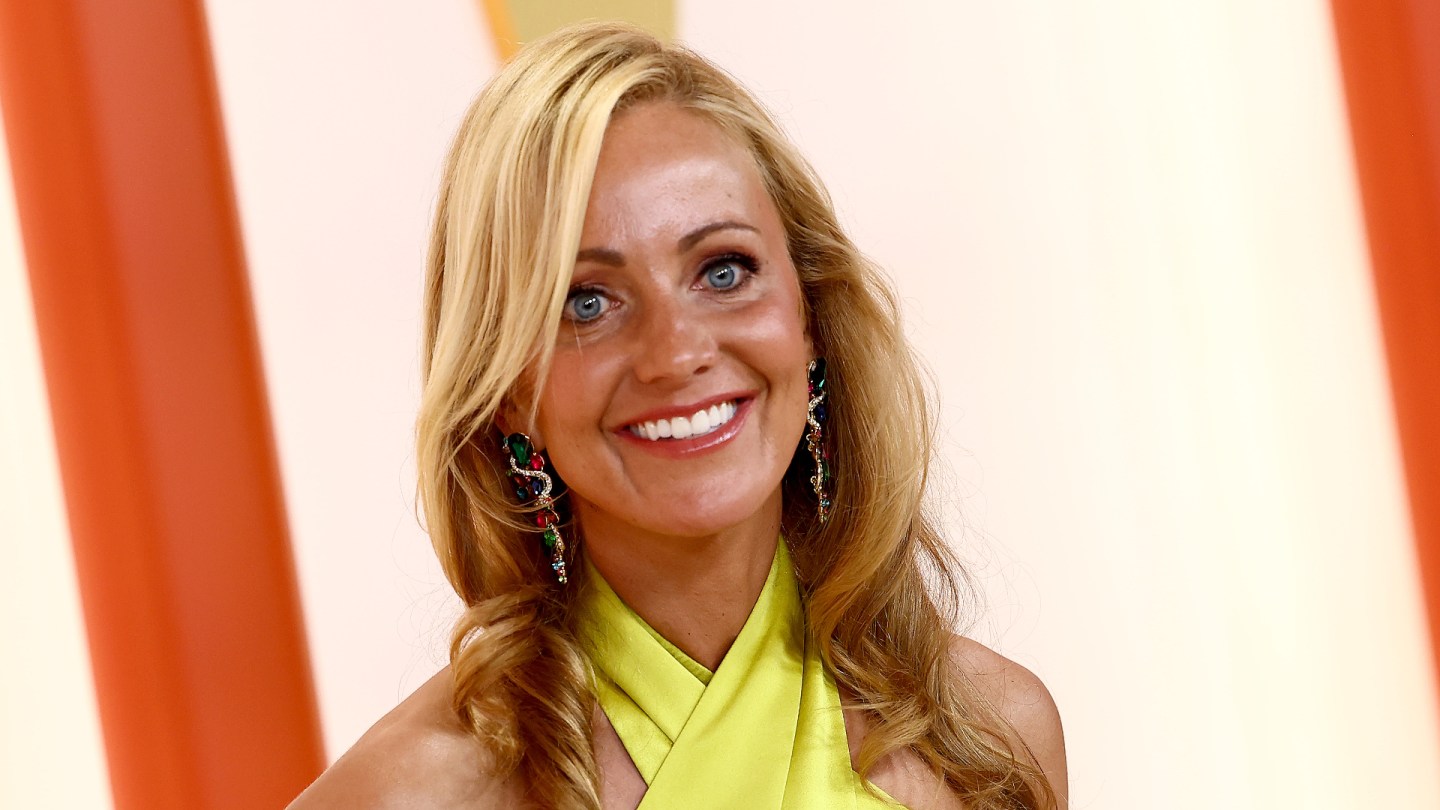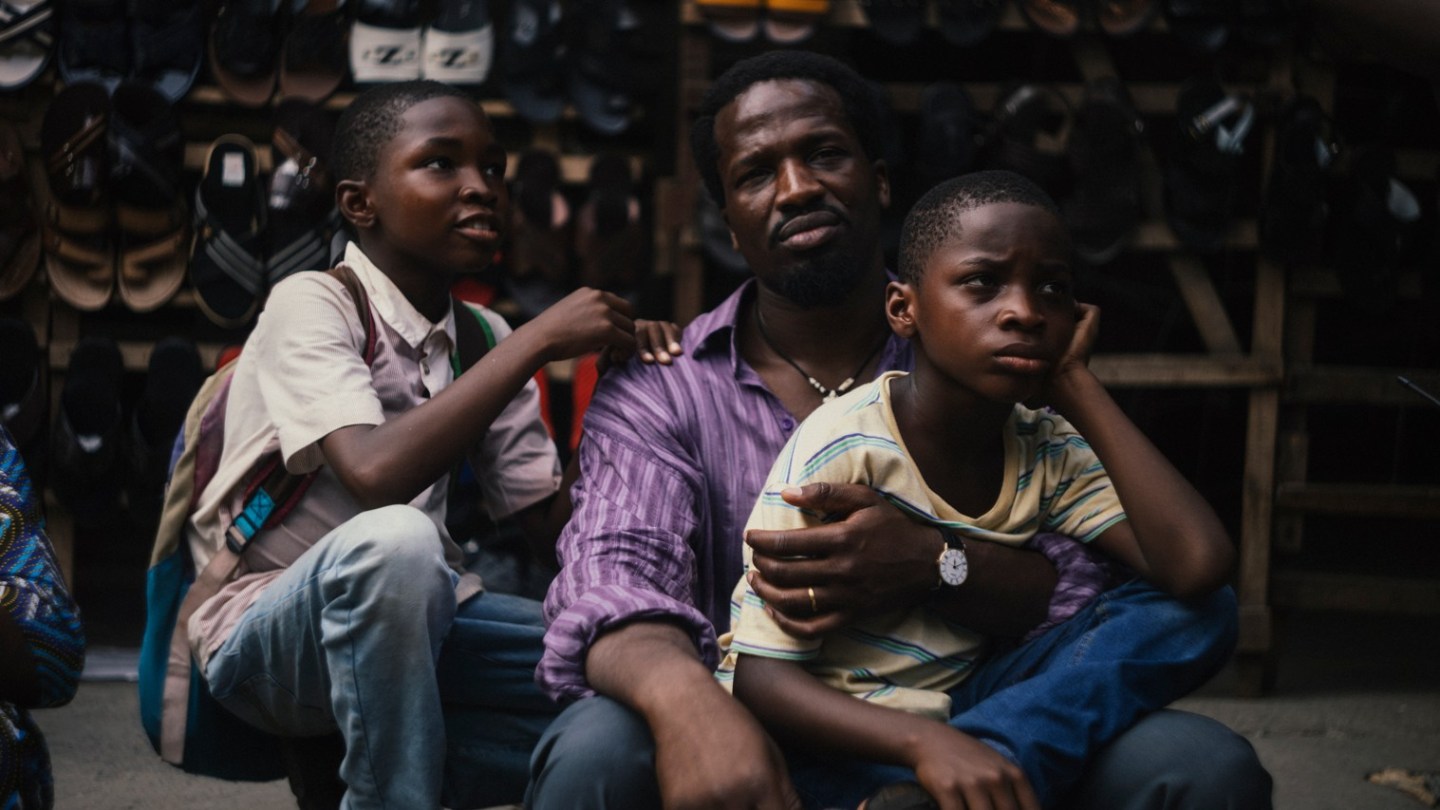
African cinema has arrived in Cannes determined to blaze its own trail amid signs of a slowdown in investment across the continent from the world’s leading streamers.
Leading the way is Akinola Davies Jr.’s drama My Father’s Shadow, an Un Certain Regard contender that’s being touted as the first Nigerian film ever selected for Cannes’ official lineup. The continent’s vast array of location options, meanwhile, is being showcased thanks to the Cameroon-set police thriller Indomptables, from French director Thomas Ngijol, part of this year’s Directors’ Fortnight lineup.
The much-anticipated Nigerian historical fantasy Osamede will also have its world premiere at the festival — screening at the Marché du Film’s Pavillon Afriques on May 17 — and its makers believe the message Africa collectively wants to share is that the continent remains open for business.
During the pandemic-era streaming boom, when the legacy studios joined Netflix in a race to boost subscriber counts, Africa — with its young demographics and large populations — was frequently touted as a promising growth market. But in the post-pandemic reassessment of streaming, when revenue per user became Wall Street’s preferred metric for assessing success in the sector (rather than sub growth at any cost) U.S. studios and platforms began speaking much less frequently about their original content ambitions in Africa.
“We’ve already realized that we want to tell authentic African stories and we don’t want to tell them just for local audiences,” says Osamede’s Nigeria-based director James Omokwe. “So Cannes is one of the first places we want to go internationally, for people to see what we’ve done — to see what’s coming out of Africa and to see our first moves out of, you know, the rubble [of the streaming investment slowdown].”
Set against the backdrop of the 1897 British invasion of the Benin Kingdom, Osamede follows an orphaned girl who happens upon supernatural powers, with the filmmakers promising a “genre-blending epic that mixes myth, magic and resistance.” The stage-to-screen production is being driven by executive producer Lilian Olubi’s Gold Lilies Productions, and it has been picked up for domestic and regional distribution by Nile Entertainment. The move to premiere the film at Cannes is designed to showcase it on a more international stage.
“In the beginning, we were having conversations about how we’d probably take the film to streamers — simple,” says Omokwe. “But now we’ve had to figure out how to do it on our own. It’s now like you’re reinventing the wheel, innovating new ways to distribute the film and make money because as it is, there’s no standard value chain, so we’re all just trying our best to see how it works.”
Amazon Prime’s decision last year to cease operations in Africa sent tremors across the continent’s content industries. The move cut investment in original content, along with momentum in the sector for mergers and acquisitions. Multiple industry insiders tell THR — asking not to be named to protect relationships and future opportunities — that they believed Netflix was implementing a slowdown of its investments in the region, too. But the California-based streaming giant is still spending more on African content than its peers.
African titles in the works from Netflix include new seasons of the popular series Kings of Jo’Burg (season three) and Fatal Seduction (season two). The company also has an ongoing partnership with the Johannesburg-based production banner Burnt Onion (Seriously Single).
Back in March — on the sidelines of the Joburg Film Festival — Netflix’s vp of content in the Middle East and Africa, Ben Amadasun, remained bullish about the streamer’s prospects in the region.
“We have seen firsthand the power and impact of African stories, not just on the continent but across the world,” Amadasun said at the event. “The global audience is hungry for authentic, bold and fresh African narratives, and Netflix is committed to ensuring those stories reach and resonate with millions of entertainment fans worldwide. Our approach is simple: We want to invest in the best African talent, collaborate with amazing local creators, and continue expanding the frontiers of what’s possible in African storytelling.”
On paper at least, prospects for the region appear full of promise. Some big names have rallied to the cause, with London-born The Wire and Luther star Idris Elba last year announcing plans to set up studios across the region, starting in Tanzania and on the semi-autonomous island of Zanzibar. The actor — who was born to a Sierra Leonean father and a Ghanaian mother — cited the K-wave content boom from South Korea as an example of what Africa could achieve, lamenting to CNN on the sidelines of the Stellar Development Foundation’s Meridian conference in London that the majority of African-set content “isn’t even generated from Africa.”
“The median age in Africa is 19; these young people are optimistic and deserve the chance to tell their own stories,” Elba said. UNESCO has projected that Africa’s film and audiovisual industry could “create 20 million jobs and add $20 billion to the continent’s GDP by 2030.”
Lagos-based media mogul Mo Abudu, founder and CEO of the EbonyLife Group, is well aware of those prospects — and of the potential for African content and talent to expand its global reach. “I’m very excited about the fact that we need to create our own distribution channels, our own distribution networks,” she says. “We need to find ways to fund our own productions. I am excited about building that ecosystem around funding, distribution and production.
“We’re working on a $50 million film fund that African filmmakers can draw from by the end of the year. We’re looking at budgets from between $2 million to $8 million. I’m excited about the fact that we’re talking to a big global distributor right now as our distribution partner — because at the end of the day, you can’t make a film and not have it distributed globally, and we don’t have global distribution outlets here at the moment.”
In addition to investing in an emerging generation of talent through her company’s EbonyLife Creative Academy, and expanding EbonyLife TV, Abudu has previously worked with Netflix on the acclaimed series Blood Sisters. She’s also close to opening a 180-seat EbonyLife Place London entertainment center on the British capital’s Wandsworth Road to showcase African film, theater, music, food, art and fashion.
“We are also in the process of launching our own OTT platform [EbonyLife ON],” says Abudu. “We will start small. We will build. But I do believe that it’s important to take these baby steps and to get out there and to start creating some momentum. We can’t keep waiting on anyone else to do this for us.”
Co-productions continue to be one of the African industry’s main drivers of investment and growth. My Father’s Shadow — which stars Sope Dìrísù and centers on a family reunion around the time of the 1993 Nigerian presidential election — was produced by the U.K.-Ireland operation Element Pictures in partnership with Nigeria’s Fatherland Productions. Support has also come via BBC Film and the BFI, while international sales are being handled by Germany’s The Match Factory.
Sarika Hemi Lakhani spent 18 years working across Africa with the Kenya-based One Fine Day Films (Nairobi Half-Life) before moving to Berlin last year to join Tom Tykwer’s X Filme Creative Pool. The hope ahead, she says, is for co-production treaties that balance creative control between those holding the purse strings from outside Africa and the talent the region is providing.
“There are so many untapped stories on the African continent,” she says. “And that means there are also so many untapped opportunities.”
#Cannes #Showcases #Africas #Film #Future


